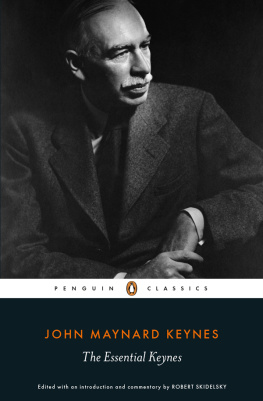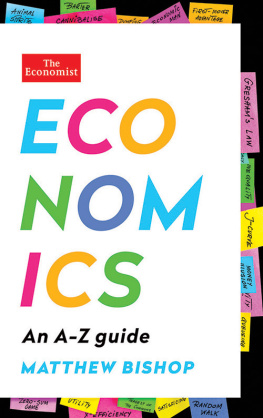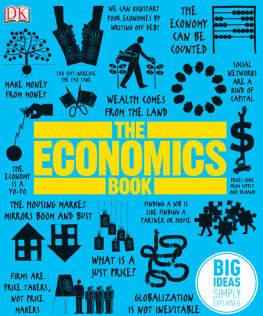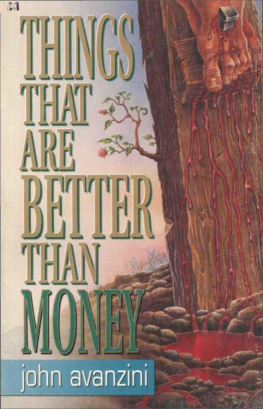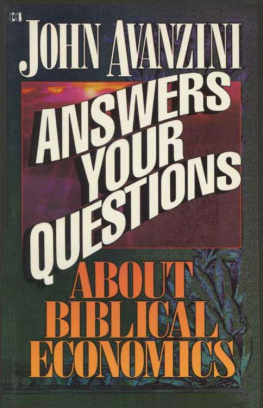CHAPTER 1
I B ELIEVE I C AN F LY
Money or God: which is more real?
It seems like a no-brainer. Even if God exists, He or She (or It, or They) is intangible. You cant prove Gods existence, you simply have to believe, or not. But money? Surely its as real as that pound note or dollar bill you can pull from your wallet, rubbing it between your fingers to prove its there.
That is to say, its no more real than an amulet or a crucifix that you might place around your neck: tangible expressions of a belief that is as potent as the strength with which you hold it. The reality is that money exists in our imagination. If we dont believe in it, that banknote is a worthless scrap. If we do, we can use it to change the world.
Do we worship money the way some of us worship God? Consider the thought. Our ancestors prayed for wealth, health and happiness. We devote our lives to getting money, often doing work we dont like, so we can get more of it. Instead of embracing hardship to reach heaven, we do it to get money. We organise our lives around its pursuit and attainment, compose songs to its beauty, achieve lightness and serenity and ecstasy in its presence.
Does that make us religious? Well, think about it. Think of the conversations that arise when you get together with friends or have a family dinner. No politics or religion at the table goes the old rule, but we think nothing of speaking of, say, our new jumper, a planned holiday in Tuscany, our kitchen-remodelling, or a possible promotion. In one way or another, the topic will keep returning to how you either make, spend or save money. Now, each time such topics arise, theres a good chance youre expressing your innermost religious beliefs. When you say something like you get what you pay for you are usually making a declaration of faith much like someone who says God is merciful. When you click send or sign the chit to transfer money into your pension fund, youre actually engaging in a spiritual act similar to the person who lights a candle in the church or prays before bed.
You see, when you hear the word money, your mind will probably drift to notes and coins. If you have a bank account, you might picture it like a drawer in a large secure vault in the basement of the building. Make a withdrawal and the drawer empties a little. Make a deposit and it fills back up. Build up enough savings, like that pension fund, and it might even fill a room, like the cavernous hall where Scrooge McDuck goes swimming in his lake of coins, and which youll only run down when you retire and start living off your accumulated riches. And the banks job is to provide you with a safe space where burglars in black balaclavas cant reach your hard-earned stash.
In fact, all of that and not just the bit about Scrooge McDuck is little more than make-believe. Any cupboards that might exist at the bank are filled only with IOUs, which are about as good as we think they are. The same goes for any bonds, shares or annuities you hold: its all ethereal. Instead of regarding money as something physical, think of that fiver in your pocket as a promise or claim. That slip of paper entitles you to someone elses resources, of which the most important is usually their labour: youre in credit when someone owes you work, and in debt when you owe them work. Its kind of ironic, when you think of it, because while we often believe that money frees us from others and makes us independent its really a written testament
It may come as news to you, but you help to create money all the time, with little more than an act of will and a show of faith. Say you ask your grocer if you can pay next week for todays shopping. To all intents and purposes youre promising to set aside some of your labour time for them over the next week. And suppose your grocer takes your IOU to their butcher and, in return for some meat, offers to transfer your debt to him. Voil, youve created a rudimentary form of money.
Humans began doing this thousands of years Over time, as societies grew larger and more complex, village economies evolved into regional economies, and IOUs, which may have been written down or simply kept as a word, began circulating. Inevitably, some entrepreneurs came along who simplified the process by keeping accounts, disbursing some agreed medium of exchange anything from shells to pieces of silver or bronze, as long as it was not easily forged. Once theyd chosen their unit of exchange, these entrepreneurs would then measure the value of each type of labour in that unit. Because these middlemen often sat on a bench in the market where they could keep everyones accounts, they became known as benchers or, using the Latin word for bench, bankers. And when their proposed unit of exchange gained widespread acceptance, and buyers and sellers began listing their prices and keeping their own accounts in that medium, its free-flowing character gave it the term we use for money: currency, like the current in a river or breeze.
Governments then realised that if they issued their own currency, and required their subjects to tender taxes in it, they could get a handle on trade and use it to raise revenue. So they devised legal tender. Once again, traders and bankers overtook them. Rather than weigh themselves down with heavy coins or the knives that were used in ancient China, they began issuing paper or cloth certificates, which were backed by money. This made currency move even more freely or, as economists like to say, it became more liquid.
And so its gone on ever since. Today, while governments regulate banks and watch over them with their own bank the so-called central bank the vast majority of the money we use is little more than figures on ledgers or digits in cyberspace, and no government can say with certainty how much money is circulating in its economy. Its like aeroplane engineering. You dont really know how that 400-ton tube of steel youre sitting in can lift off the ground and get you across the ocean, but you trust that someone else does.
Because it gives us command over people well never even meet, money has assumed almost mystical properties. And for as long as we believe that power is real, money enables us to create stuff out of nothing. Want to see how? Go ask your banker for a loan. She wont actually take money from one account to place in yours. Instead, shell effectively promise to find cash equal to that figure should anyone want to see it which hardly anyone ever does, since they trust the bank and take payment in a cheque or an alteration to the figures on their own ledger. The banker, meanwhile, will assume youll either buy a house or another asset equivalent to the value of the loan, or at least keep your job and pay back the loan from future work. Its like shes found a way for you to harvest the fruits of tomorrows labours, today. Needless to say, this whole system depends on everyone having faith in one another: faith there will be a future, and faith in the banks ability to convert this ethereal, almost spiritual entity our faith and promises into matter (or what we prefer to call assets). This transformation of nothing into something drives our modern economy forward, and though we take it for granted, to ancient eyes it would have looked like a miracle.
In truth, it pretty much is a miracle. Try this experiment. Go and withdraw a wad of bills from your cash machine, then wave it around in public. Watch how people react. When you reflect on that experience, it wont come as a shock to you to hear that when Melanesian islanders first encountered Westerners on their shores and saw how they would cross the world and kill one another over little slips of worn paper, they assumed the parchments had magical powers. As a result, just as medieval European alchemists had once done, their own scientists began experimenting with paper to uncover its secret code.


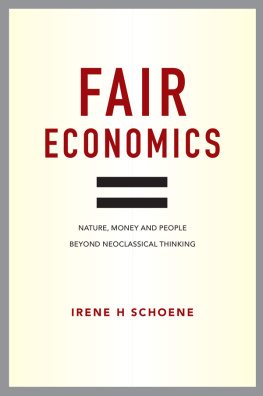
![David Orrell [David Orrell] - Quantum Economics](/uploads/posts/book/114631/thumbs/david-orrell-david-orrell-quantum-economics.jpg)
